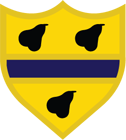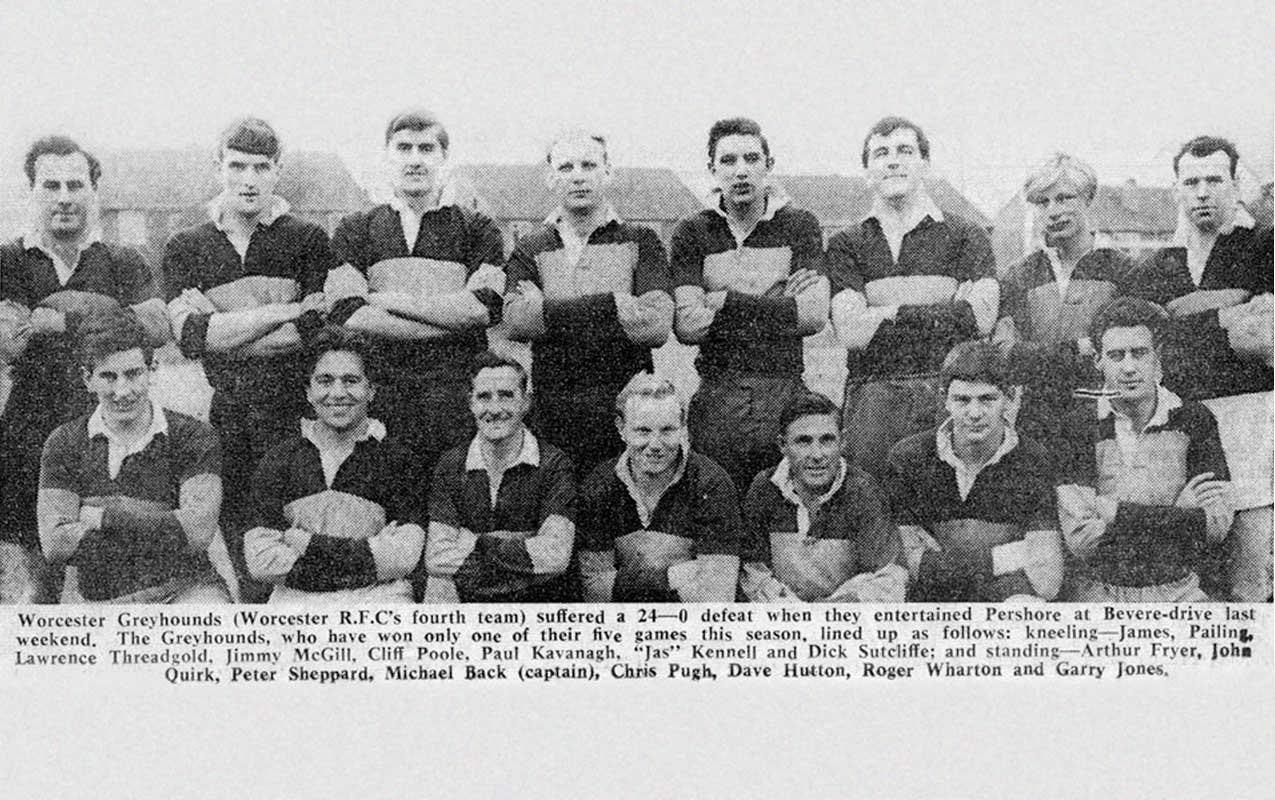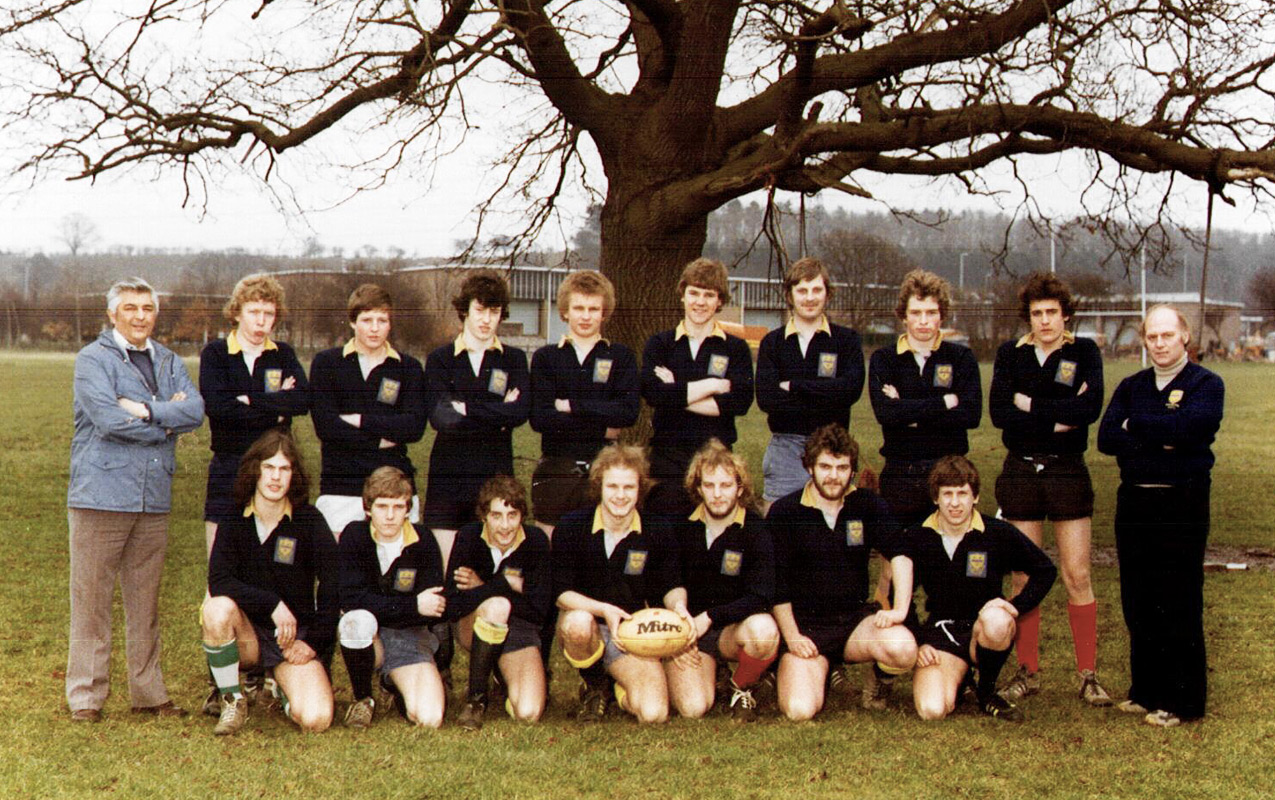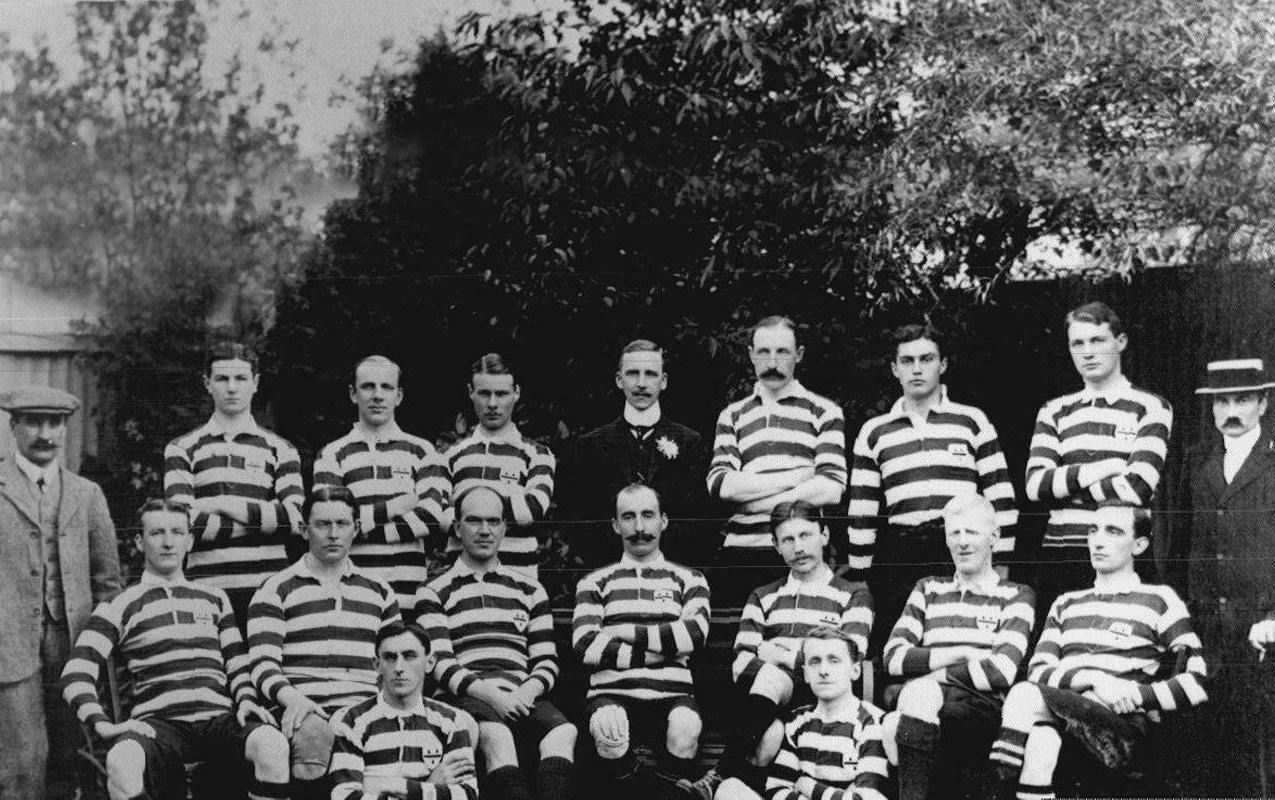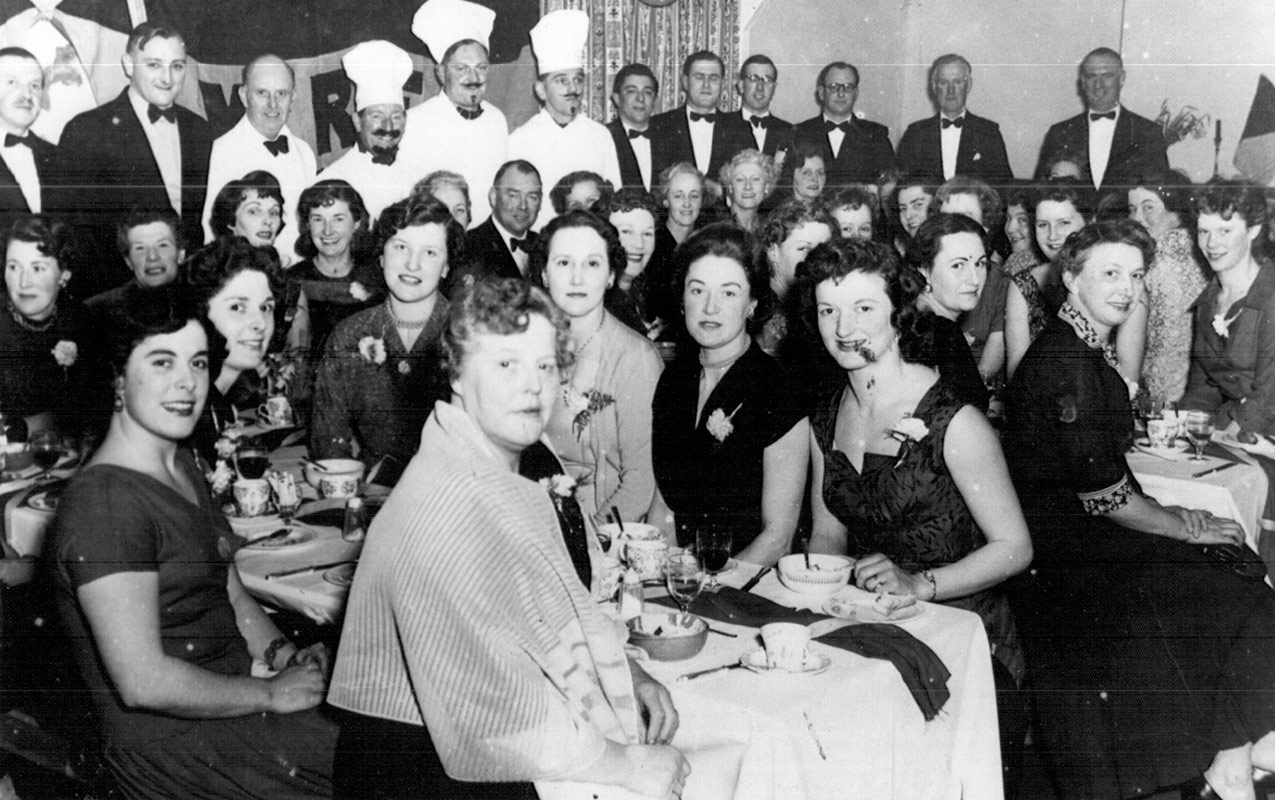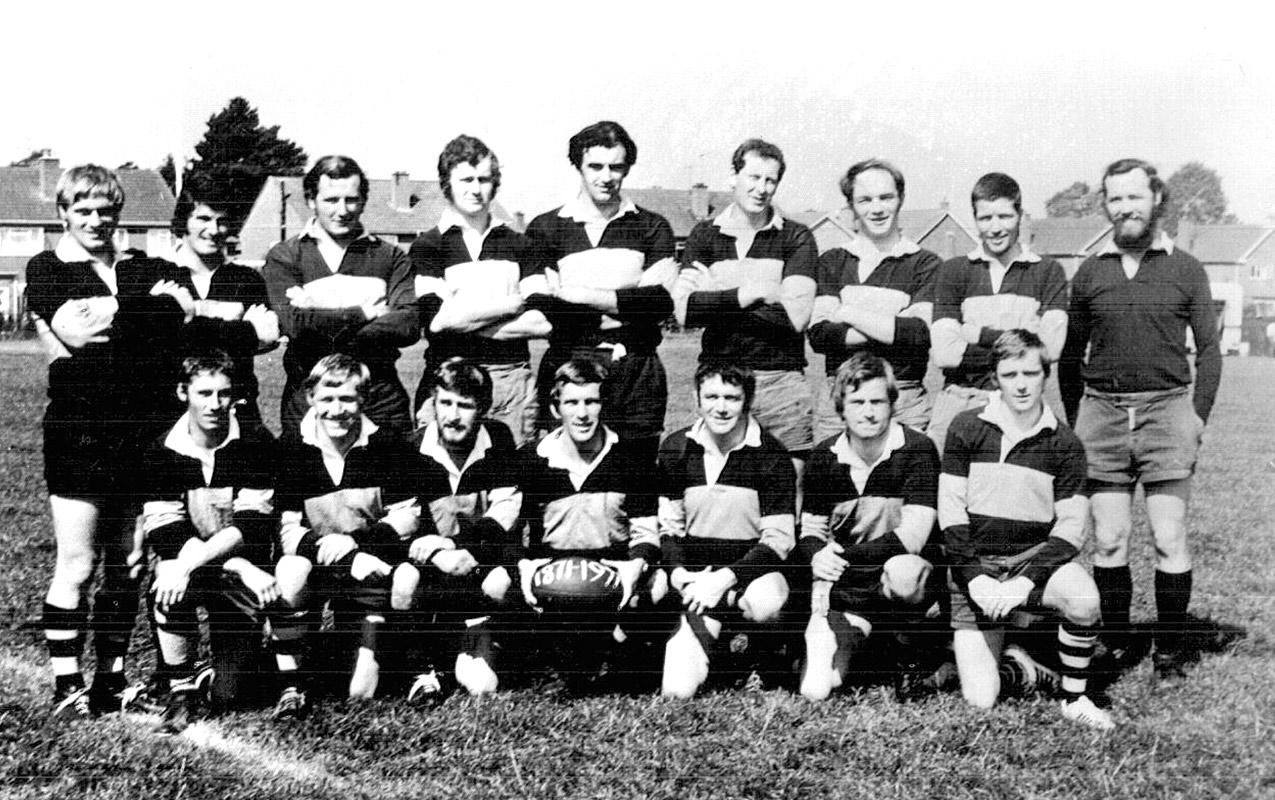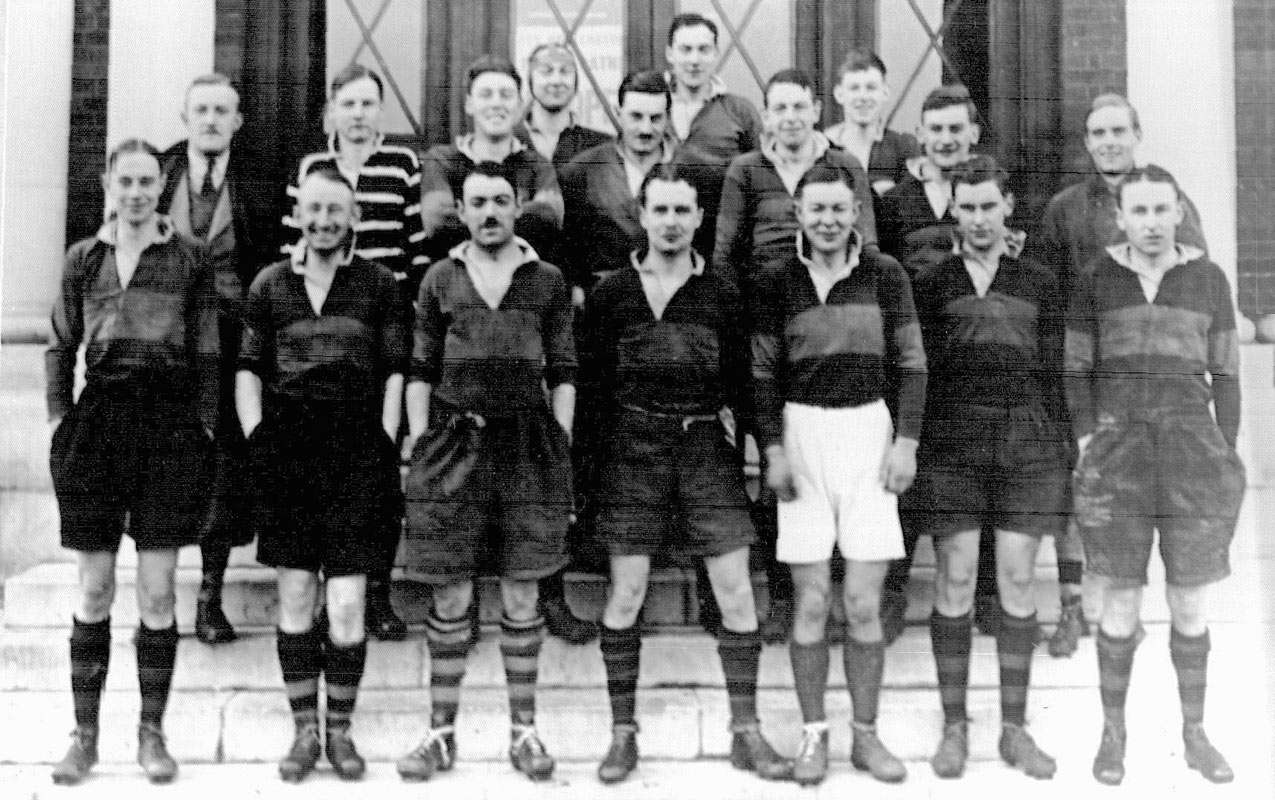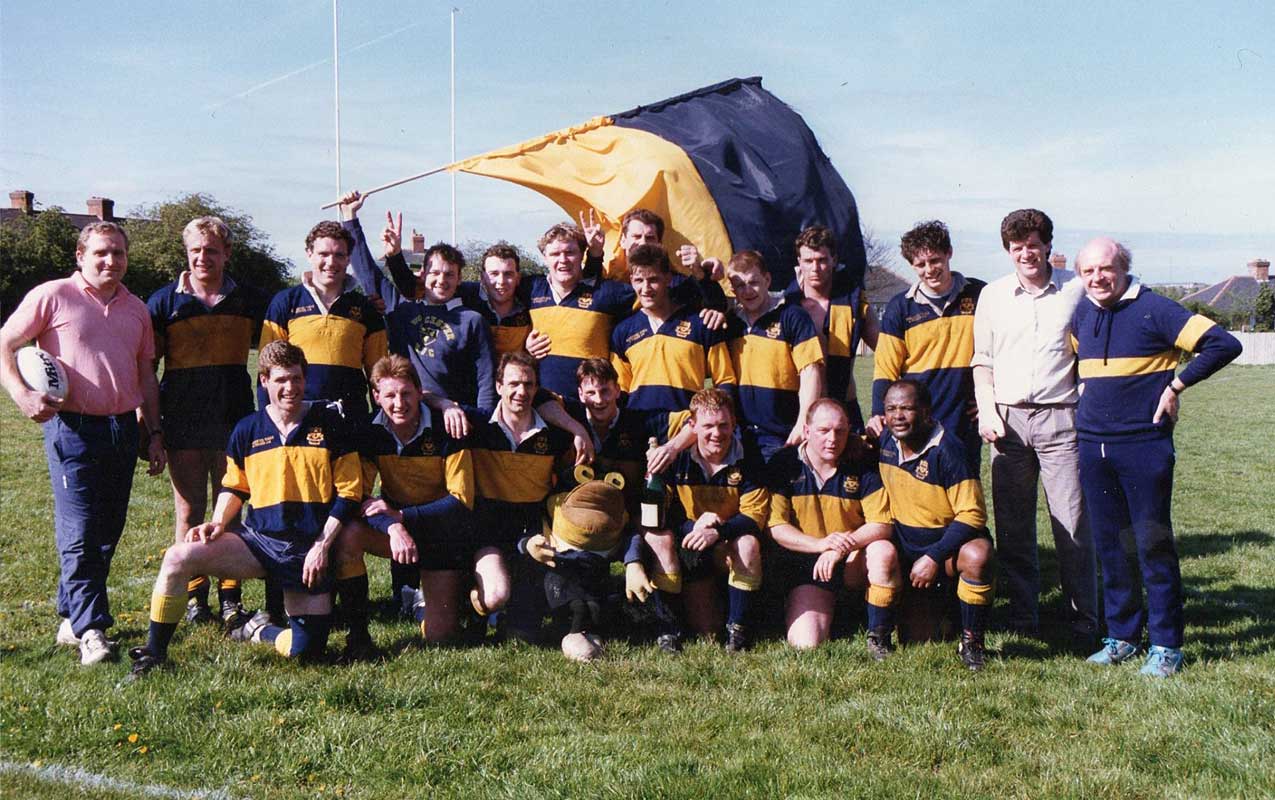Customer login
Not registered yet?
Register now! It is easy and done in 1 minute and gives you access to special discounts and much more!
Clive Spencer
I moved to Worcester in September 1969 to take up a teaching appointment at New College Worcester – then known as Worcester College for the Blind.
My introduction to rugby was at five years old, being taken each week by my father to watch Coventry at Coundon Road. He had played for Coventry himself as an outside half and centre and was a Coventry Vice President. At that time, Coventry were one of the foremost rugby clubs in England with numerous internationals. An England front row of Phil Judd, Bert Godwin and Mike McLean, George Cole at scrum half and Peter Jackson on the right wing. The Coventry pack would grind down teams in those days when their ’nine-man rugby’ approach was ideally suited to the game where it was legal to kick directly in to touch from anywhere on the pitch. In common with many other ‘big’ clubs, Coventry FC (no 'R' or 'U' because there was only one form of football!) failed to embrace the professional era, lost their Coundon Road ground, and had to reinvent themselves.
My hero was Peter Jackson, like Godwin, also a British Lion. In days when shirt numbers were numbered from full back to back row forward (why did it change?) he wore shirt number 5. I can do no better than quote from his Guardian obituary where his ability was described as 'mesmeric genius'. It was inevitable, therefore, that when I began secondary school, on the first games afternoon, I positioned myself as a right wing threequarter. However, lacking the guile, speed or ability of my hero, and being one of the tallest on the field, I was quickly found out, and put with the forwards. My rugby career then followed selection in the back row.
My secondary school was Bablake School Coventry and was my first experience of playing rugby. There had been no opportunity before this, as unlike today, clubs did not have mini sections with the chance to begin playing so much earlier. It was only in my second year, as an under 13, that we played fixtures against other schools. In my first year I had run cross country races, but the school policy was that if you were wanted by the school for rugby, then that took priority over anything else. I progressed through the school teams and finished captaining the first team in my final Sixth Form year. My rugby master at Bablake was Goronwy Morgan to whom I am indebted for any rugby talent that I ever acquired. A scrum half, he played for Swansea and Coventry, and left in the 1970s to succeed Carwyn James as rugby master at Llandovery College.
The other similar school to Bablake in Coventry was King Henry VIII School and there was a rugby rivalry with a similarity to that between King's School and the Royal Grammar School in Worcester. Both Duckham brothers attended 'Henry’s' and although David is older than me, I played against brother Phil and England international Peter Rossborough who was also the same year.
Our school gates were some 200 metres from the nearest gates to the Coundon Road ground, and it was possible to make a dash at 4 o'clock to see the end of a county championship or tourist game. My greatest memory of being at the ground was in December 1963 when the All Blacks played a Midland Counties (West) side with the legendary Don Clarke dropping a goal from the intersection of the 5 yard and halfway lines.
Leaving school, I went to St Luke’s College in Exeter. Unable to gain a regular place in any college team (despite there being at least five), my rugby career faltered. After spending a year without playing, I decided to try my luck at Exeter. A regular game at last, including some first team appearances, usually deputising in the second row for John Baxter (father of the current Chiefs coach Rob Baxter) when he was playing a Devon county game, midweek, or when he had farming commitments. Fellow first team player was Martin Underwood, England wing and one of my tutors at college. (Incidentally, his school days were spent at King Charles I Kidderminster). This was pre-professional and Sandy Park days, when Exeter played at the County Ground. Around the rugby pitch was a greyhound track with races on a Saturday night. After a game at home, coming out of the clubhouse, it was amusing to see the greyhounds chasing a white painted rugby ball with two ears stuck on it purporting to be a hare!
On to Worcester in September 1969. The ground at Bevere with its dilapidated clubhouse and post training drinks at the Mug House. I believe the Club captain then was either Jeremy Richardson or David Robins. Club Chairman (or President) was Ted Burnham. I remember having to buy my own playing shirt which has only recently been thrown away. However, I remember being offered a second hand one for which I paid £2.00. Not sure what happened (I probably objected to being dropped!) but in my first or second season, I went to join Moseley at the Reddings – sadly another ground that is no longer. I spent three or four years there playing occasional midweek games for the first team. This was the Sam Doble/John Finlan/Jan Webster era and Moseley were a top national team. With the latter two, I returned to Bevere for the Worcester sevens tournament, which we won. It was the only time in my playing career to have suffered a serious injury – to my right knee. In my old age, any sideways movement to the left still acts as a reminder.
While at Moseley, I played several times for the Combined counties team of Hereford and Worcester. I also came to play my first game at Sixways for the official opening game. Not sure what the teams were but I played in a team at the official opening of Sixways in 1975, together with Mike Gibson (Ireland and British Lions).
Sometime after the move to Sixways, I returned to play for Worcester until retiring at the end of the 1980-81 season. For a good deal of this time Neville South was the captain – an unforgiving battering ram of a centre. So sad that he should have been taken from us so suddenly and so young. On one occasion, the team and I both had appalling games away at either Caldy or Winnington Park, and I had decided to quit. Neville was then instrumental in my change of heart. His personal approach in visiting me at home and making me see sense meant a great deal to me. Years later, one incident was to make me realise it was time to go. The game was on a very damp early spring night under the floodlights at Sixways with Stroud as the opponents. Towards the end of the game, we were defending close to our own line, and I found myself on the ground at the bottom of a ruck. I can still visualise the opposition boot coming towards my face. This is probably the only time that I left the field before the final whistle. This single incident was enough for me to question my motives for continuing to play. Nursing the stitches and now the scar as a lasting memory of my playing days. I saw out the end of the season until April 1981 and took up running. I ran my first marathon in the July.
The floodlit pitch at Sixways and the first team pitch were located in what is now the area occupied by the car park, while the current Sixways pitch was very much the pitch for use by the most junior of teams. After retiring from playing, I spent a couple of seasons watching Worcester junior teams play on Saturdays and reporting back to the selection committee meeting on Monday evenings. At one such observation game, at Dudley Kingswinford, a Worcester player had to leave the field injured, and I had stupidly continued to take my kit in case of just such an incident. I lasted two minutes, being sent off for a straight arm tackle on one of the opposition - his own fault for trying to sidestep and yet still be within reach! My only ever dismissal for WRFC and I had retired!
Also after retiring, I would spend Friday evenings in the bar at Sixways answering the phone for those players crying off, trying to find replacement players from a lower team and pulling players in who would have otherwise expected to spend their time on the Saturday in a more leisurely fashion. This was, of course, before the days of email, mobile phones and text messaging. It usually worked out all right, with most teams finishing with a full complement of players on the Saturday.
Times have changed with the advent of the professional era and the success of Worcester Warriors. There are thousands watching the games. Where were these people when the game was amateur? The games I played in were watched by perhaps two dozen spectators and the proverbial dog. Happy days - most of the time!
Clive Spencer
WRFC 1969-1981
